Poging GOUD - Vrij
Knowledge Xuanzang & the Gettier Problem
Philosophy Now
|August/September 2025
Maya Koka journeys through the desert to seek knowledge about knowledge.
-

The date is 632 AD. The location is Lanzhou, China. The time is precisely 10:00 am. A Buddhist monk named Xuanzang and his companion, a tiger, are journeying through the Gobi Desert. Their mission: to find water. Suddenly they see a valley resembling a blue expanse. Xuanzang turns to his feline friend and remarks, “Look, there is water!” Unfortunately, the glistening blue is a mirage. Yet, when they reach the valley, Xuanzang finds water, hidden beneath a large rock. Did the Buddhist monk know there was water ahead? In other words, is his initial belief that there was water in the valley to be considered knowledge?
This situation of Xuanzang’s represents what philosophers these days call a Gettier case. This is a philosophical problem made famous by Edmund Gettier (1927-2021) in an attempt to critique the traditional Socratic or Platonic theory of knowledge as being ‘justified true belief’. On that account, having a belief that is both justified and true is necessary and sufficient for knowledge. If one has a justified true belief, one has knowledge. However, while justified true belief is indeed a necessary conditions for knowledge, Gettier showed that it is not sufficient. He did this by giving various instances in which an agent has a belief both true and justified, yet which fails to be knowledge. I want to look at a novel formulation of the Gettier problem, and also consider a method to respond to Gettier cases through the instantiation of a fourth condition for knowledge.
First, how can we know that we have any knowledge at all? Let’s once again revisit 632 AD. According to the justified true belief model, Xuanzang has knowledge of there being water in the valley based on the following conditions:
Dit verhaal komt uit de August/September 2025-editie van Philosophy Now.
Abonneer u op Magzter GOLD voor toegang tot duizenden zorgvuldig samengestelde premiumverhalen en meer dan 9000 tijdschriften en kranten.
Bent u al abonnee? Aanmelden
MEER VERHALEN VAN Philosophy Now

Philosophy Now
Pharmaco-Metaphysics?
Raymond Tallis argues against acidic assertions, and doubts DMT discoveries.
7 mins
August/September 2025
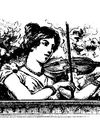
Philosophy Now
Nine Spiritual Exercises
Massimo Pigliucci explains how to get Philo-Sophical.
3 mins
August/September 2025

Philosophy Now
Books
We follow mammal's search for meaning, as Mark Vorobej savages John Gray's book of impractical cat philosophy, while B.V.E. Hyde ponders the point of Jordan Peterson. In Classics, Hilarius Bogbinder reviews Plato's Republic.
21 mins
August/September 2025
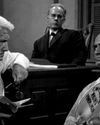
Philosophy Now
The Centennial of the Scopes ‘Monkey’ Trial
Tim Madigan on the creation and the evolution of a legend.
14 mins
August/September 2025
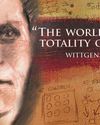
Philosophy Now
Gödel, Wittgenstein, & the Limits of Knowledge
Michael D. McGranahan takes us to the edge of language, mathematics and science.
10 mins
August/September 2025
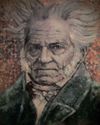
Philosophy Now
Weltschmerz and the World
Ian James Kidd takes a realistic and global view of the history of pessimism.
10 mins
August/September 2025
Philosophy Now
What Makes A Work Of Art Great?
Each answer below receives a book. Apologies to all the entrants not included.
16 mins
August/September 2025

Philosophy Now
The Beatles: Nothing is Real
Clinton Van Inman gets back to the psychedelic Sixties.
4 mins
August/September 2025

Philosophy Now
The Post-Truth Kerfuffle
Susan Haack, who is Distinguished Professor in the Humanities, Cooper Senior Scholar in Arts & Sciences, Professor of Philosophy, and Professor of Law, at the University of Miami, talks with Angela Tan about how and when we know.
11 mins
August/September 2025
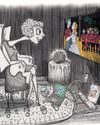
Philosophy Now
A Crisis of Attention
Paul Doolan attends to our culture of attention demanding.
13 mins
August/September 2025
Listen
Translate
Change font size
